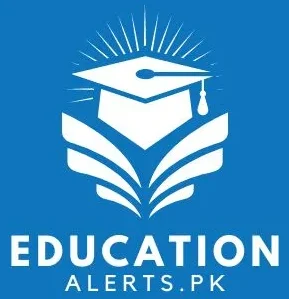8171: Applying for Scholarships Online in Pakistan (2024)
Introduction
The Pakistani education system offers various scholarship programs to support students financially. One such program is linked to the code 8171, which plays a crucial role in facilitating online applications for these scholarships (wazifa) in 2024. This essay aims to explore the 8171 online application process, analyzing its advantages, potential challenges, and offering valuable tips for students seeking scholarships.
Understanding 8171 and Wazifa Applications
What is 8171?
8171 is a code associated with the Ehsaas Taleemi Wazifa Program, a Pakistani government initiative designed to provide financial aid to deserving students pursuing education. This code likely acts as an identifier or access point within the online application system for these scholarships.
What is “Wazifa” in this Context?
“Wazifa” translates to “scholarship” in Urdu and refers to financial assistance awarded to students based on merit or need. The 8171 program specifically targets scholarships offered through the Ehsaas initiative.
How to Apply for Wazifa Online (2024)
The exact application process may vary slightly depending on the specific scholarship program under the Ehsaas umbrella. However, a general outline can be provided:
Eligibility: Students must meet specific criteria like academic performance, income level, and educational background to qualify for scholarships. Information on eligibility requirements should be available on the official website of the program or relevant government agency.
Online Platform: It’s likely that a dedicated online portal exists for managing 8171 scholarship applications. Students may need to register and create an account on this platform to access the application form.
Required Documents: The application process typically involves uploading scanned copies of documents like academic transcripts, CNIC (Computerized National Identity Card), income certificates, and any other documentation specified by the program.
Deadlines: Applications for scholarships typically have strict deadlines. Students must ensure they submit their completed applications and all required documents before the deadline to be considered.
Students should always refer to the official website of the specific scholarship program or relevant government agency for the most accurate and up-to-date details on the application process.
Advantages and Challenges of Online Applications
Advantages
Efficiency: Online applications streamline the process, allowing students to submit their documents electronically from anywhere with an internet connection, eliminating the need for physical submissions.
Accessibility: Online applications make scholarships more accessible, especially for students in remote areas who may have previously faced difficulties reaching application centers.
Transparency: Online platforms can provide a clear overview of application status, deadlines, and eligibility criteria, increasing transparency for students.
Fairness: Online applications can potentially offer a fairer system by eliminating the need for physical submissions that could be lost or delayed.
Challenges
Digital Divide: Not all students have access to reliable internet connections or the necessary digital literacy skills to navigate online applications.
Security Concerns: There may be concerns about data security and the potential for online fraud during the application process.
Technical Issues: Technical glitches or platform malfunctions could hinder the application process for some students.
Considerations for Students and Authorities
Alternative Application Methods: While online applications are becoming increasingly common, it’s important to explore if alternative methods, such as physical submissions, are still available for students facing challenges with online access.
Importance of Digital Literacy: Equipping students with basic digital literacy skills is crucial to ensure they can take advantage of online application opportunities.
Tips for Students: Here are some tips for students applying for scholarships online:
Carefully research the specific scholarship program and its eligibility criteria.
Ensure a stable internet connection before starting the application process.
Prepare all required documents electronically in advance.
Proofread the application thoroughly before submitting.
Meet all deadlines strictly.
Keep copies of submitted documents and application confirmations for reference.
Role of Authorities: Government agencies and educational institutions managing online scholarship applications should strive to:
Ensure the online platform is user-friendly and accessible for students with varying levels of digital literacy.
Provide clear instructions and guidance on the application process.
Offer technical support to students facing difficulties with the online platform.
Conclusion
The 8171 online application process represents a significant advancement in facilitating access to scholarships in Pakistan. By acknowledging its advantages and addressing potential challenges, this system can empower students and contribute to a more equitable and transparent scholarship distribution process.

